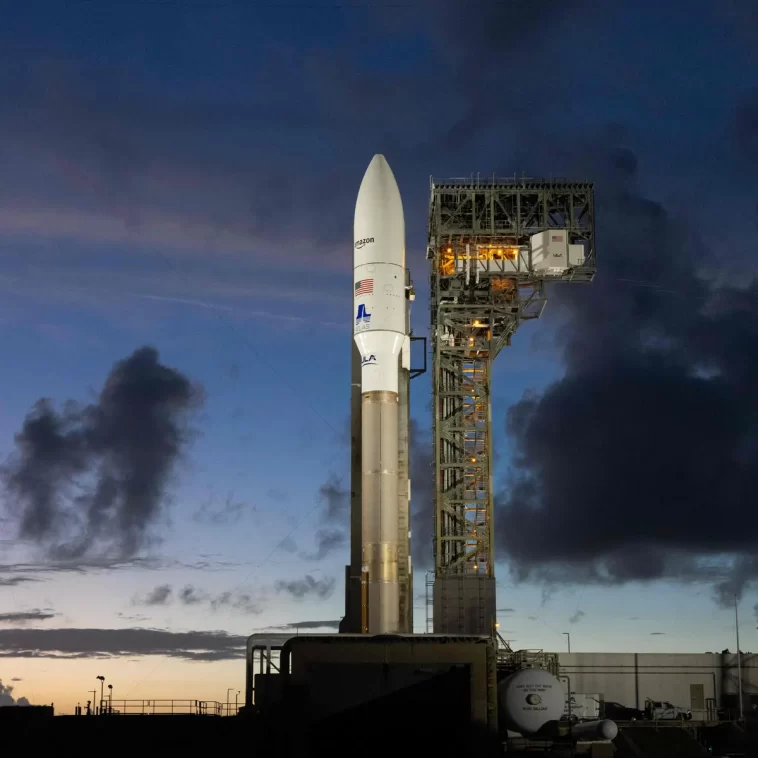Friday saw the launch of the first test satellites for Amazon’s planned internet service, which will be a competitor to the broadband network operated by SpaceX.
The Atlas V rocket owned and operated by United Launch Alliance was responsible for the launch of the two test satellites, which marked the beginning of a program that will ultimately involve the placement of 3,236 satellites in orbit around the Earth in an effort to increase internet connectivity around the globe.
Amazon anticipates that it will launch its service offerings by the end of the next year.
SpaceX, which is owned and operated by Elon Musk, has a significant head start over Amazon, which was founded by Jeff Bezos, who also has his own rocket company called Blue Origin.
In 2018, SpaceX successfully launched its first Starlink satellites for testing, and in 2019, the company launched its first satellites for operational use. Since then, it has used its own Falcon rockets to send more than 5,000 Starlink satellites into space from launch sites in Florida and California.
In addition, Eutelsat OneWeb, which is based in Europe, is currently in the process of launching internet satellites, with over 600 already in orbit.
At first, Amazon was willing to deploy their satellites on the inaugural flight of the Vulcan rocket that was developed by ULA. In light of the fact that the Vulcan will be out of commission due to technical issues until at least the end of this year, Amazon opted to replace it with the more experienced Atlas V.
The Federal Communications Commission required that at least half of the planned satellites be operational by the year 2026, and that all of the satellites be operational by the year 2029, in order to grant licensing for the program.
ALSO READ : Musk mocks Zelensky. Ukraine fires back: ‘Encouragement of Russia’
In order to bring everything into orbit, Amazon has scheduled 77 launches with ULA, Blue Origin, and Arianespace in Europe.






